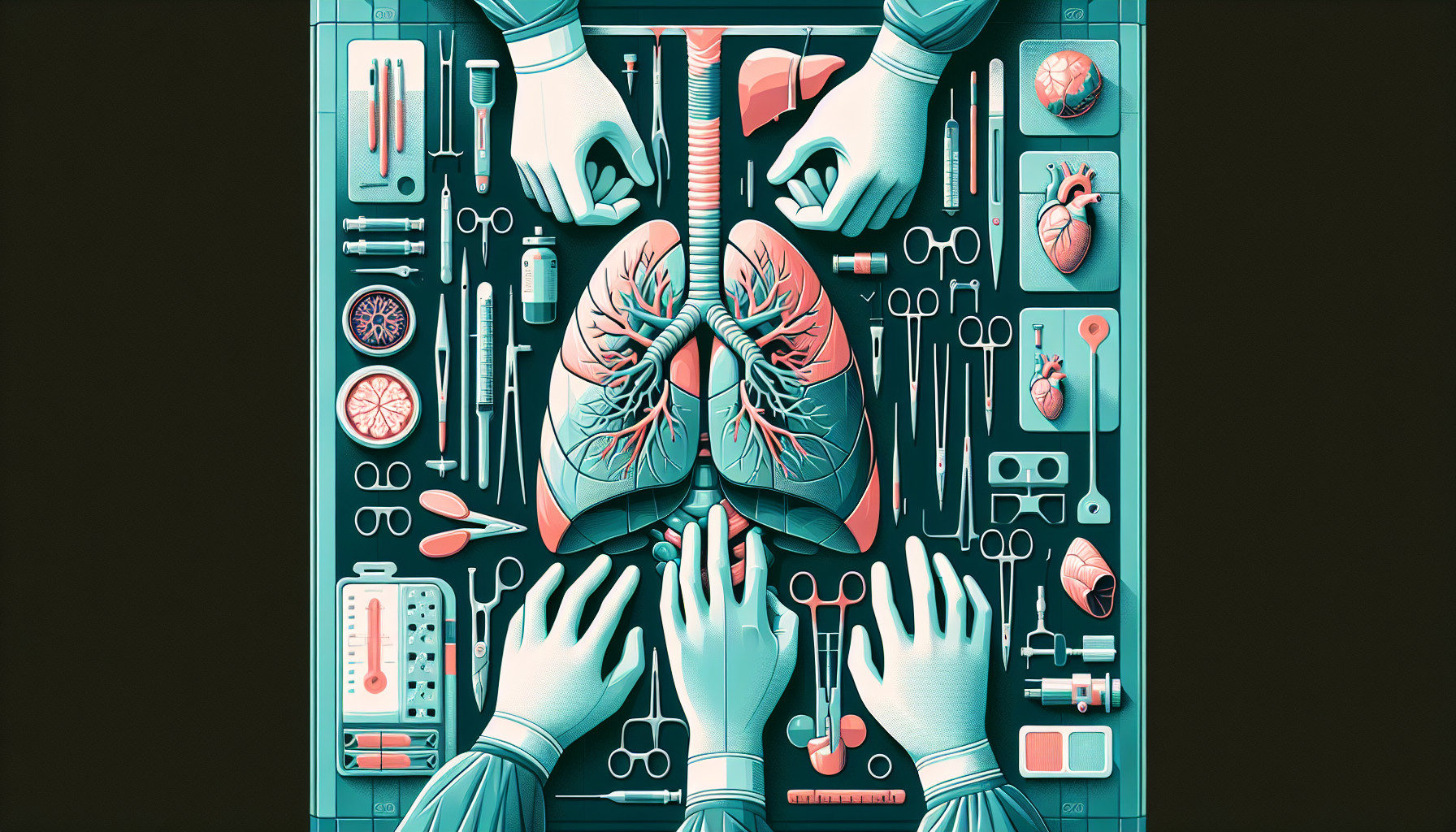Our Summary
This research paper examined how a patient’s smoking habits before lung surgery affect their recovery. The study looked at data from lung surgeries that occurred over a span of about 9 years. The patients were divided into three groups: people who had smoked within the 4 weeks leading up to their surgery, people who had quit smoking more than 4 weeks before their surgery, and people who had never smoked.
The study found that out of 2,426 patients, about 21% were smokers, about 60% had quit smoking, and about 20% had never smoked. The patients who were smoking right up to their surgery had a higher rate of complications after their operation. Specifically, they were more likely to get lower respiratory tract infections and experience prolonged air leaks. They also had a higher risk of dying within 90 days of their surgery compared to the other two groups. Additionally, these patients had longer hospital stays, had to be readmitted more often, and their hospital stays were more costly.
The study concludes that smoking up to the time of surgery can lead to worse outcomes for the patient and a higher cost for healthcare systems. This suggests the importance of encouraging patients to quit smoking before undergoing surgery.
FAQs
- How does a patient’s smoking habits prior to lung surgery affect their recovery?
- What complications were more prevalent in patients who smoked up to the time of their surgery?
- Does smoking prior to surgery affect the cost of healthcare and length of hospital stays?
Doctor’s Tip
A helpful tip a doctor might give to a patient about lung resection is to quit smoking at least 4 weeks before the surgery. This can help reduce the risk of complications during and after the operation, improve recovery outcomes, and decrease the cost of healthcare. It is important for patients to discuss their smoking habits with their healthcare provider and seek support to quit smoking if needed.
Suitable For
Patients who are typically recommended for lung resection include those with lung cancer, lung infections, chronic obstructive pulmonary disease (COPD), bronchiectasis, and other conditions that affect the lungs. It is important for patients to discuss their individual case with their healthcare provider to determine if lung resection is the best treatment option for them.
Timeline
Before lung resection:
- Patient is evaluated by a healthcare provider to determine if lung resection is necessary
- Patient undergoes pre-operative testing such as blood work, imaging scans, and pulmonary function tests
- Patient may be advised to quit smoking to improve surgical outcomes
- Surgery date is scheduled and patient may need to follow specific pre-operative instructions
After lung resection:
- Patient undergoes surgery to remove part or all of the affected lung
- Patient is monitored closely in the recovery room for any complications
- Patient may need to stay in the hospital for a few days to recover
- Patient will follow a post-operative care plan that includes pain management, breathing exercises, and physical therapy
- Patient will have follow-up appointments with their healthcare provider to monitor their recovery and address any concerns
Overall, the timeline for a patient before and after lung resection involves careful evaluation, preparation, surgery, recovery, and ongoing monitoring to ensure the best possible outcome.
What to Ask Your Doctor
Some questions a patient should ask their doctor about lung resection include:
- What are the potential risks and complications associated with lung resection surgery?
- How will my smoking habits impact my recovery and outcome after surgery?
- Is it necessary for me to quit smoking before undergoing lung resection surgery?
- How soon before surgery should I quit smoking to reduce the risk of complications?
- Are there any resources or support programs available to help me quit smoking before surgery?
- How will my smoking history be taken into consideration when planning my post-operative care?
- What steps can I take to improve my lung health and overall recovery after surgery?
- How long is the typical recovery time after lung resection surgery, and how can I best support my recovery process?
- What lifestyle changes, including smoking cessation, can I make to improve my long-term prognosis after surgery?
- Are there any specific tests or evaluations that should be done to assess my lung health before and after surgery?
Reference
Authors: Ahmed-Issap A, Mantio K, Jain S, Habib A, Brazier A, Raseta M, Abah U. Journal: Thorac Cardiovasc Surg. 2024 Apr;72(3):227-234. doi: 10.1055/a-2160-5091. Epub 2023 Aug 25. PMID: 37625455
